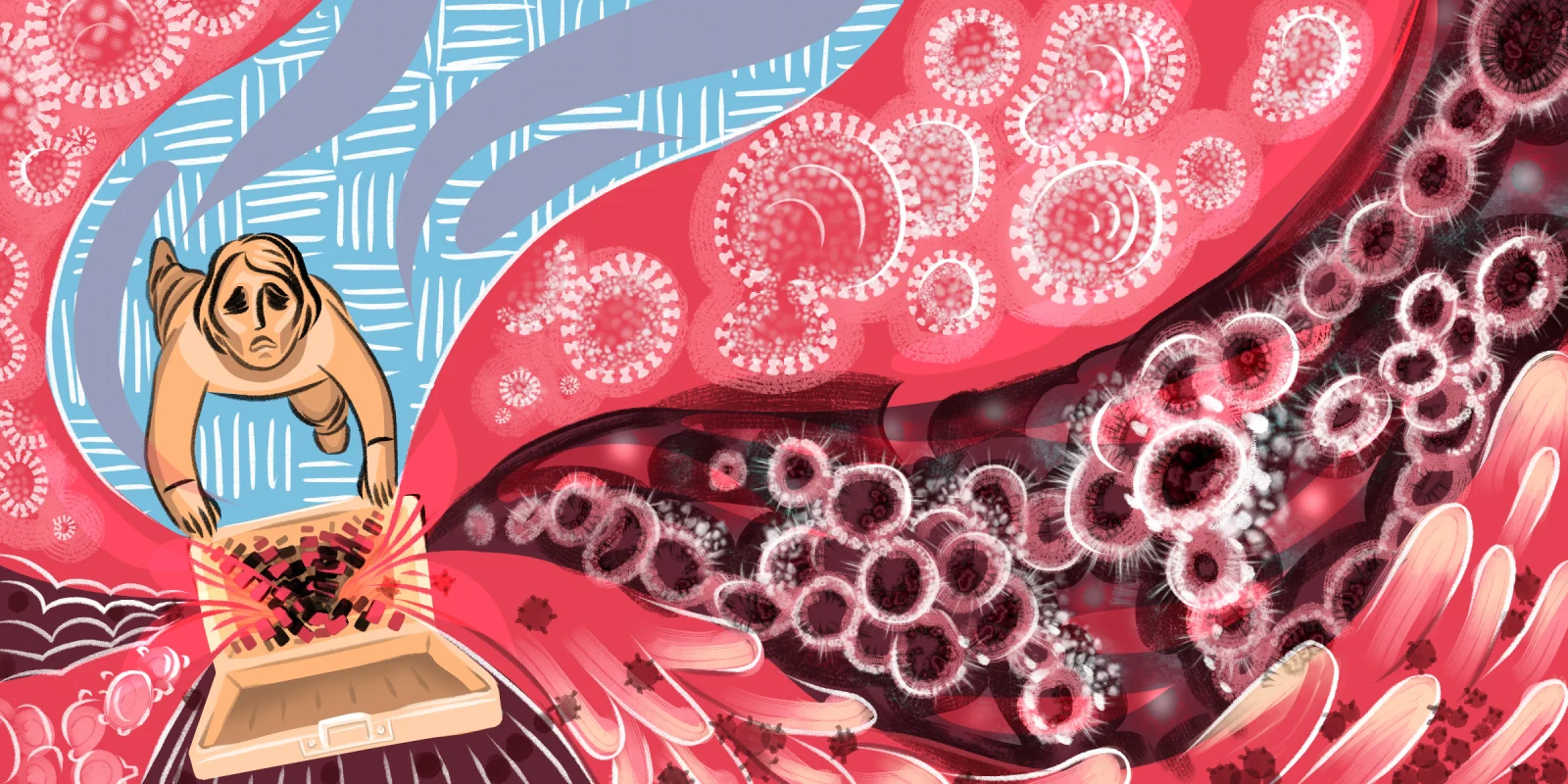I am a professor of ID at the University of Washington in Seattle, where I have practiced since 2005. My job involves directing our ID fellowship, co-directing our antimicrobial stewardship program, running the ID clinic and consult service, attending on inpatient internal medicine, and lots of teaching. I absolutely love what I do. ID is so dynamic, so challenging, so much fun.
And, thanks to COVID-19, ID has also become so very grinding. Like many colleagues across the nation and around the world, I have shifted much of my effort to the coronavirus response, collaborating with a brilliant team to develop protocols, implement policies, and answering so very many questions from our health care workers. From the very beginning, our health care workers understood that we still had lots to learn about this new pathogen, but they were willing to work with us in spite of scientific uncertainties because they trusted that we always placed their safety as our top priority. And, we delivered on that promise, with a track record that was the envy of the nation. This was “all hands on deck,” the most exhausting, all-consuming work of our careers. Although the manic pace of the initial months has settled into a more sustainable rhythm, the demands for ID expertise have never been higher.
Please bear in mind — we ID docs were over-busy before COVID-19! And, those other infections have not gone away. In fact, here in Seattle we perceive a substantial increase in serious bacterial infections, often presenting late and neglected because of the pandemic. In particular, the opioid use disorder epidemic has hit our community hard, especially the dreaded complication of infective endocarditis. Our case load and complexity were high before, and are now unprecedented. Our hospital is full. Our consult teams are swamped, slammed, and overwhelmed with desperately ill patients — and I am not even including our rising census of COVID-19 patients.
To be clear: We have trained for this. At least, as much as anyone can prepare for an unprecedented pandemic, ID was prepared to take this on. Just as ID surged and adapted in the 1980s to the new threat of HIV, so too has our profession stepped up in a very big way with COVID-19. We know so much more now about the best ways to prevent, diagnose, and treat the infection. Judging by our growth of knowledge since the early months of 2020, we must have been well prepared.
But, nothing prepared me for the politicization of the pandemic. I never anticipated receiving hate mail and death threats, simply because I advocated for people to protect themselves and their families. I was stunned to see the public lose trust in our most sacred institutions, the CDC and NIH. Dr. Fauci is our hero — more than that, he is our rock star. One of the worst heartbreaks of this pandemic has been watching him endure so much unwarranted venom.
All of which brings me to IDWeek 2020. This is our international meeting, the one week per year when physicians, pharmacists, advance-practice providers, microbiologists, nurses, epidemiologists, and industry partners come together. Lectures are given… workshops held… guidelines previewed… posters shared (oh, so very many posters!)… and society business advances in committee meetings. By any measure, it is a fabulous meeting, and I have not missed one since 2005.
Of course, the meeting was converted to happen exclusively online. The prospect of missing a year of IDWeek was too sad to contemplate — yes, of course I would register! But… what would it be like? Would we truly connect and interact, or would this be yet another death march through the valley of Zoom?
I need not have worried. Seeing colleagues for the first time in a year was so energizing, uplifting, and reassuring. So much science to discuss, and so much strength to be found in our conversations.
True, meeting online was not as much fun as doing it in person, but it came much closer than I had imagined. Plus, I was able to break away briefly to see several very sick patients, which would have been impossible if I had traveled to Philadelphia. Sleeping in my own bed was a lovely change, too.
Holding IDWeek 2020 online was unprecedented, and it was the perfect response to this unprecedented pandemic. We were physically distant, but socially closer than ever. Being connected to my amazing peers reassured me, soothed me, and inspired me. I was reminded that COVID-19 is not our enemy. After all, enemies wish us harm. The virus that causes COVID-19 has no such intention… it does not even have a social media presence, or thumbs to tweet with if it did.
I see COVID-19 as a giant inkblot test, staring back at us every time we go to work, check our kids into school, shop at the grocery store, surf the web... The pandemic is always there, staring us down, asking us what kind of society we will choose to build. Will we come together and rise to the challenge (and oh my, how challenging it is!)? Or, will we choose a different path?
Indeed, our shared enemy is not the virus, but rather ignorance — willful or otherwise. Disinformation, misinformation, mistrust of our public health leaders — and yes, systemic racism — these are our enemies. And the cure is within our grasp. IDWeek 2020 marked a watershed in our collective determination to make progress, to stick to the science, to remain committed to advancing public health — no matter how heavy the burden. Indeed, no matter how heavy the burden, it is but so much lighter when carried together.
Illustration by April Brust





